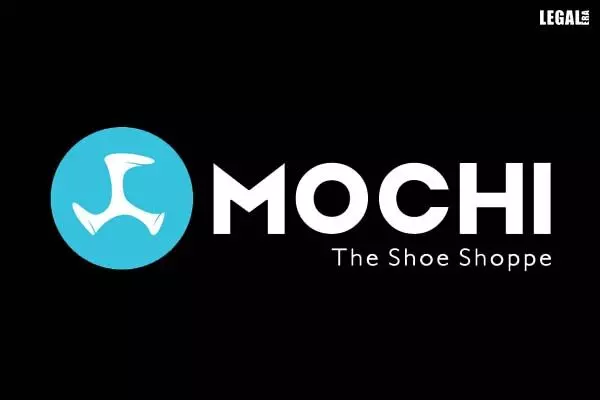- Home
- News
- Articles+
- Aerospace
- Artificial Intelligence
- Agriculture
- Alternate Dispute Resolution
- Arbitration & Mediation
- Banking and Finance
- Bankruptcy
- Book Review
- Bribery & Corruption
- Commercial Litigation
- Competition Law
- Conference Reports
- Consumer Products
- Contract
- Corporate Governance
- Corporate Law
- Covid-19
- Cryptocurrency
- Cybersecurity
- Data Protection
- Defence
- Digital Economy
- E-commerce
- Employment Law
- Energy and Natural Resources
- Entertainment and Sports Law
- Environmental Law
- Environmental, Social, and Governance
- Foreign Direct Investment
- Food and Beverage
- Gaming
- Health Care
- IBC Diaries
- In Focus
- Inclusion & Diversity
- Insurance Law
- Intellectual Property
- International Law
- IP & Tech Era
- Know the Law
- Labour Laws
- Law & Policy and Regulation
- Litigation
- Litigation Funding
- Manufacturing
- Mergers & Acquisitions
- NFTs
- Privacy
- Private Equity
- Project Finance
- Real Estate
- Risk and Compliance
- Student Corner
- Take On Board
- Tax
- Technology Media and Telecom
- Tributes
- Viewpoint
- Zoom In
- Law Firms
- In-House
- Rankings
- E-Magazine
- Legal Era TV
- Events
- Middle East
- Africa
- News
- Articles
- Aerospace
- Artificial Intelligence
- Agriculture
- Alternate Dispute Resolution
- Arbitration & Mediation
- Banking and Finance
- Bankruptcy
- Book Review
- Bribery & Corruption
- Commercial Litigation
- Competition Law
- Conference Reports
- Consumer Products
- Contract
- Corporate Governance
- Corporate Law
- Covid-19
- Cryptocurrency
- Cybersecurity
- Data Protection
- Defence
- Digital Economy
- E-commerce
- Employment Law
- Energy and Natural Resources
- Entertainment and Sports Law
- Environmental Law
- Environmental, Social, and Governance
- Foreign Direct Investment
- Food and Beverage
- Gaming
- Health Care
- IBC Diaries
- In Focus
- Inclusion & Diversity
- Insurance Law
- Intellectual Property
- International Law
- IP & Tech Era
- Know the Law
- Labour Laws
- Law & Policy and Regulation
- Litigation
- Litigation Funding
- Manufacturing
- Mergers & Acquisitions
- NFTs
- Privacy
- Private Equity
- Project Finance
- Real Estate
- Risk and Compliance
- Student Corner
- Take On Board
- Tax
- Technology Media and Telecom
- Tributes
- Viewpoint
- Zoom In
- Law Firms
- In-House
- Rankings
- E-Magazine
- Legal Era TV
- Events
- Middle East
- Africa
Bombay High Court Grants Interim Relief To Metro Shoes In Mochi Trademark Dispute

Bombay High Court Grants Interim Relief to Metro Shoes in 'Mochi' Trademark Dispute
The Bombay High Court has declared the trademark "Mochi" as a "well-known mark" in India under the Trademarks Act. In a recent ruling, Justice RI Chagla granted interim relief to Metro Brands Ltd., the plaintiff, in its trademark infringement case against Nice Shoes LLP, the defendant, who was accused of using the similar mark "DESIMOCHI."
Metro Brands, the owner of the "Mochi" trademark, which has been a recognized brand since 1977, argued that the use of "DESIMOCHI" by Nice Shoes would confuse consumers and damage its reputation. The company highlighted its extensive use of the "Mochi" mark, supported by evidence of significant advertising and marketing spend of over ₹236 crores between 2012 and 2022, along with a strong retail presence in over 826 stores across India.
Advocate Rashmin Khandekar, representing Metro Brands, contended that the addition of the prefix "DESI" to "MOCHI" did not diminish the likelihood of confusion, as it did not alter the fundamental identity of the "Mochi" brand. He argued that the prefix "DESI" only suggested an Indian origin and did not create a distinct overall impression from the original mark.
In response, Nice Shoes claimed that "Mochi" is a common term in India, used to describe cobblers and footwear makers. They argued that the term was generic, and the addition of "DESI" made the mark sufficiently distinct. However, the Court disagreed, ruling that the use of "DESIMOCHI" was likely to mislead consumers.
The Court ruled in favor of Metro Brands, granting an interim injunction restraining Nice Shoes from using the "DESIMOCHI" mark and ordering them to transfer the domain name "www.desimochi.com" to Metro. It also declared that "Mochi" is a well-known mark under Section 2(1)(zg) of the Trademarks Act.
The Court emphasized that the mere addition of a generic prefix does not eliminate the similarity between the two marks, especially since Nice Shoes' mark contained the entirety of Metro's registered mark. The Court concluded that Metro Brands had established a strong case for infringement, and the balance of convenience favored granting the injunction to prevent irreparable harm to the plaintiff.



